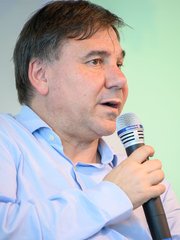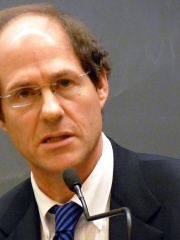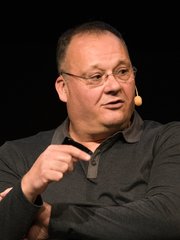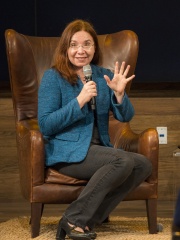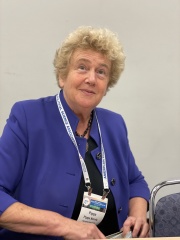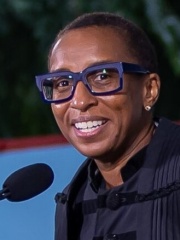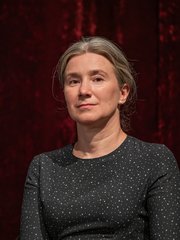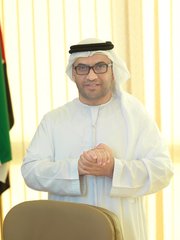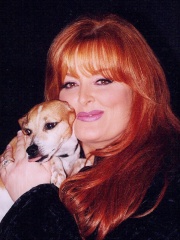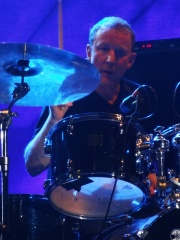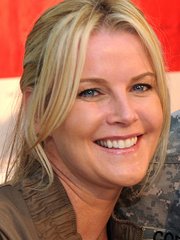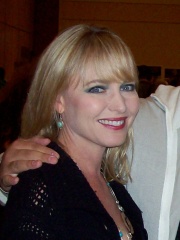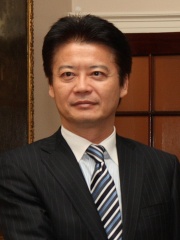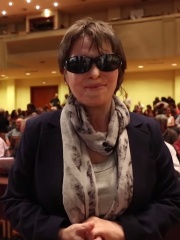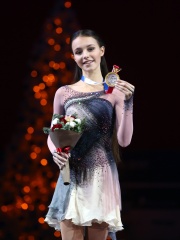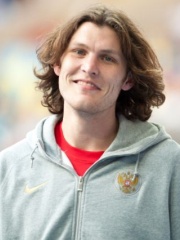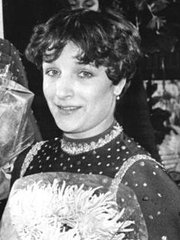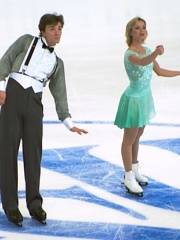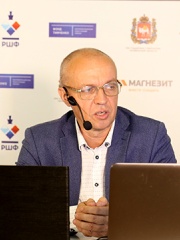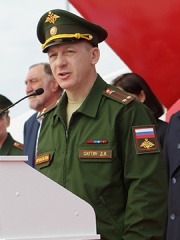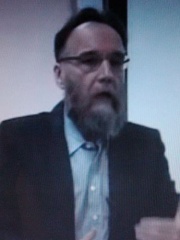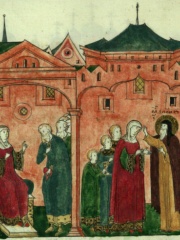POLITICAL SCIENTIST
Alena V. Ledeneva
1964 - Today
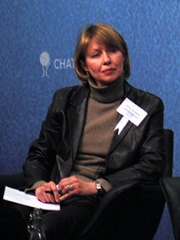
 Alena V. Ledeneva
Alena V. Ledeneva
Alena Valeryevna Ledeneva (Russian: Алёна Валерьевна Леденёва; born May 1964) is a Russian academic known for her studies of corruption and informal practices in Russia, particularly blat. She is currently Professor of Politics and Society at the School of Slavonic and East European Studies (SSEES), University College London (UCL). Read more on Wikipedia
Her biography is available in 17 different languages on Wikipedia (up from 16 in 2024). Alena V. Ledeneva is the 46th most popular political scientist (down from 42nd in 2024), the 2,996th most popular biography from Russia (down from 2,911th in 2019) and the 3rd most popular Russian Political Scientist.
Memorability Metrics
Page views of Alena V. Ledeneva by language
Among POLITICAL SCIENTISTS
Among political scientists, Alena V. Ledeneva ranks 46 out of 46. Before her are Sidney Verba, Ivan Krastev, Cass Sunstein, Cas Mudde, Katharine Hayhoe, and Pippa Norris. After her are Claudine Gay, Ekaterina Schulmann, Bruce Gilley, and Salem Al Ketbi.
Most Popular Political Scientists in Wikipedia
Go to all RankingsSidney Verba
1932 - 2019
HPI: 53.44
Rank: 40
Ivan Krastev
1965 - Present
HPI: 50.37
Rank: 41
Cass Sunstein
1954 - Present
HPI: 49.77
Rank: 42
Cas Mudde
1967 - Present
HPI: 48.25
Rank: 43
Katharine Hayhoe
1972 - Present
HPI: 47.72
Rank: 44
Pippa Norris
1953 - Present
HPI: 45.21
Rank: 45
Alena V. Ledeneva
1964 - Present
HPI: 44.79
Rank: 46
Claudine Gay
1970 - Present
HPI: 44.68
Rank: 47
Ekaterina Schulmann
1978 - Present
HPI: 44.56
Rank: 48
Bruce Gilley
1966 - Present
HPI: 39.01
Rank: 49
Salem Al Ketbi
2000 - Present
HPI: 30.92
Rank: 50
Contemporaries
Among people born in 1964, Alena V. Ledeneva ranks 955. Before her are Wynonna Judd, Dave Rowntree, Kurt Russ, Sam Graddy, Per Sætersdal, and José Pintos Saldanha. After her are Maeve Quinlan, Lisa Wilcox, Ma Yanhong, Kōichirō Genba, Dean Saunders, and Konstantina Kouneva.
Others Born in 1964
Go to all RankingsWynonna Judd
SINGER
1964 - Present
HPI: 44.85
Rank: 949
Dave Rowntree
MUSICIAN
1964 - Present
HPI: 44.85
Rank: 950
Kurt Russ
SOCCER PLAYER
1964 - Present
HPI: 44.81
Rank: 951
Sam Graddy
ATHLETE
1964 - Present
HPI: 44.81
Rank: 952
Per Sætersdal
ATHLETE
1964 - Present
HPI: 44.81
Rank: 953
José Pintos Saldanha
SOCCER PLAYER
1964 - Present
HPI: 44.80
Rank: 954
Alena V. Ledeneva
POLITICAL SCIENTIST
1964 - Present
HPI: 44.79
Rank: 955
Maeve Quinlan
ACTOR
1964 - Present
HPI: 44.75
Rank: 956
Lisa Wilcox
ACTOR
1964 - Present
HPI: 44.75
Rank: 957
Ma Yanhong
1964 - Present
HPI: 44.74
Rank: 958
Kōichirō Genba
POLITICIAN
1964 - Present
HPI: 44.73
Rank: 959
Dean Saunders
SOCCER PLAYER
1964 - Present
HPI: 44.72
Rank: 960
Konstantina Kouneva
POLITICIAN
1964 - Present
HPI: 44.72
Rank: 961
In Russia
Among people born in Russia, Alena V. Ledeneva ranks 2,996 out of 3,761. Before her are Anna Shcherbakova (2004), Svetlana Goncharenko (1971), Ivan Ukhov (1986), Elena Valova (1963), Elena Berezhnaya (1977), and Sergei Shipov (1966). After her are Dmitri Sautin (1974), Denis Golovanov (1979), Olga Medvedtseva (1975), Larisa Peleshenko (1964), Yusup Abdusalomov (1977), and Dmitry Shevchenko (1967).
Others born in Russia
Go to all RankingsAnna Shcherbakova
SKATER
2004 - Present
HPI: 44.83
Rank: 2,990
Svetlana Goncharenko
ATHLETE
1971 - Present
HPI: 44.83
Rank: 2,991
Ivan Ukhov
ATHLETE
1986 - Present
HPI: 44.82
Rank: 2,992
Elena Valova
SKATER
1963 - Present
HPI: 44.81
Rank: 2,993
Elena Berezhnaya
SKATER
1977 - Present
HPI: 44.80
Rank: 2,994
Sergei Shipov
CHESS PLAYER
1966 - Present
HPI: 44.79
Rank: 2,995
Alena V. Ledeneva
POLITICAL SCIENTIST
1964 - Present
HPI: 44.79
Rank: 2,996
Dmitri Sautin
ATHLETE
1974 - Present
HPI: 44.78
Rank: 2,997
Denis Golovanov
TENNIS PLAYER
1979 - Present
HPI: 44.74
Rank: 2,998
Olga Medvedtseva
SKIER
1975 - Present
HPI: 44.74
Rank: 2,999
Larisa Peleshenko
ATHLETE
1964 - Present
HPI: 44.71
Rank: 3,000
Yusup Abdusalomov
WRESTLER
1977 - Present
HPI: 44.70
Rank: 3,001
Dmitry Shevchenko
FENCER
1967 - Present
HPI: 44.69
Rank: 3,002
Among POLITICAL SCIENTISTS In Russia
Among political scientists born in Russia, Alena V. Ledeneva ranks 3. Before her are Aleksandr Dugin (1962), and Marfa Boretskaya (1450). After her are Ekaterina Schulmann (1978).
Aleksandr Dugin
1962 - Present
HPI: 70.18
Rank: 1
Marfa Boretskaya
1450 - 1503
HPI: 57.86
Rank: 2
Alena V. Ledeneva
1964 - Present
HPI: 44.79
Rank: 3
Ekaterina Schulmann
1978 - Present
HPI: 44.56
Rank: 4

